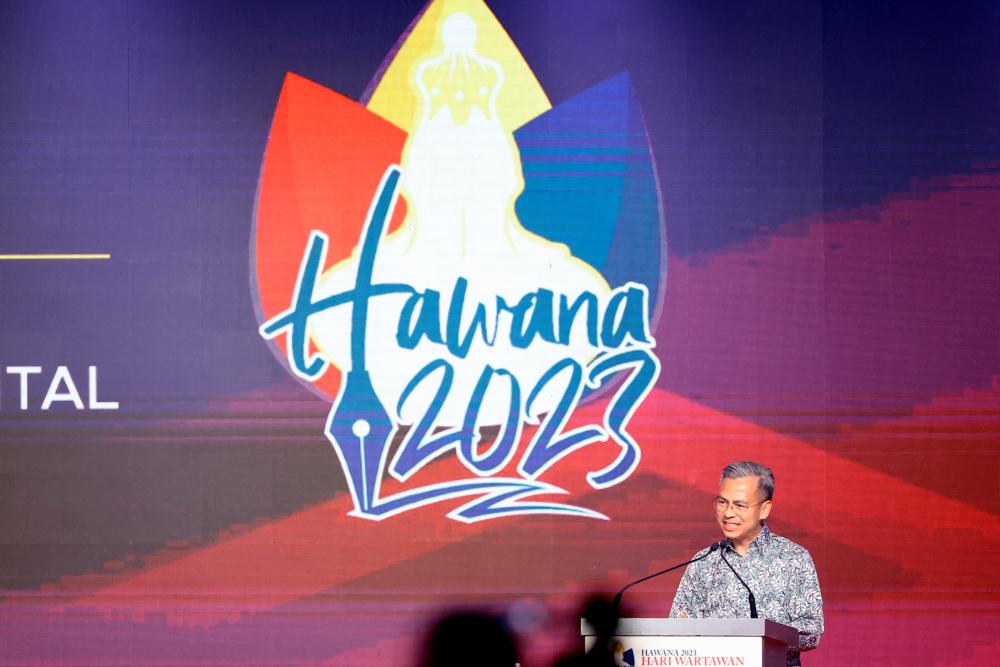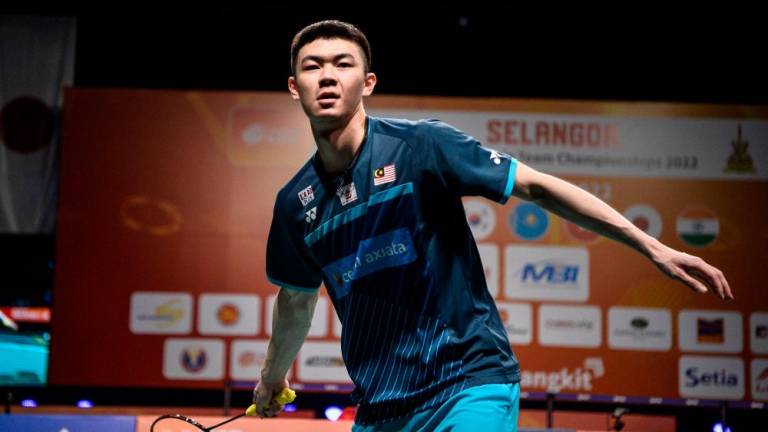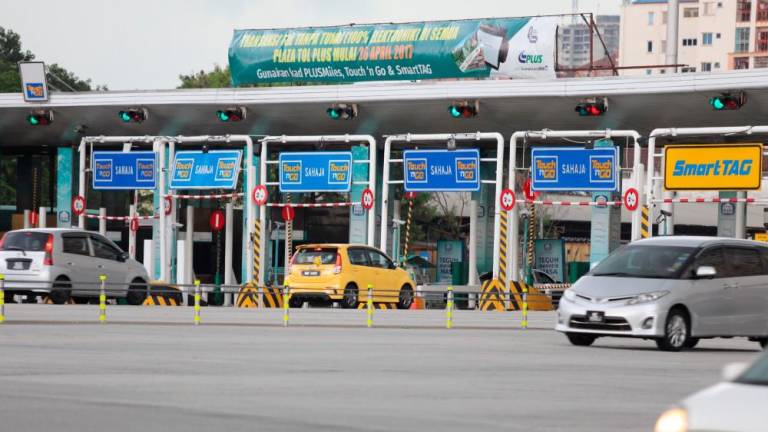IPOH: At the events held in conjunction with National Journalists Day (HAWANA) 2023 over the weekend here, social media took centre stage – alternately as the boogeyman whose arrival destroyed traditional media’s source of income and the saviour offering the best way for traditional media to survive and grow.
This year’s HAWANA theme, Free and Secure Media, a Pillar for Democracy, explored the need for a free and independent press. But journalism is under threat currently, not just losing much of its ability to fund itself, but also its standing as the gatekeeper of facts and ability to speak truth to power with the advent of social media.
Traditional media has been on the decline over the past decade due to the emergence of social media which has taken over as the primary advertising platform with its ability to provide advertising tailored to the user. It has also become a major driver of information and news, with issues first reported on social media gaining traction and public response.
The loss of advertising dollars meant many traditional media outlets here and in other countries have had to cut costs including laying off journalists and shrinking budgets for investigative journalism. Many news organisations have also had to shut down permanently.
Media experts at the HAWANA media forum, titled Survival of Traditional Media in the Digital Era, agreed that in order for traditional media to compete with social media, news organisations need to churn out news in a way that is appealing to users.
“Content is king. So when we don’t have good content, eventually, the distribution gets affected,” said Nicholas Sagau, chief operating officer at Rev Media. He said news organisations were experts at creating content, “but the only thing they needed to change was the way (they) delivered the content.”
“You got to gain eyeballs for your newspaper platform,” agreed Sheila Shanmugam, chief executive officer of Mindshare Group.
But while there were plenty of suggestions on how to attract new audiences and readers via social media as HAWANA 2023 concluded on Monday, it fell short of establishing a framework to monetise the content provided by news organisations.
Can NMC help?
Many journalists and media practitioners think the answer lies in a National Media Council (NMC) which they consider crucial to regulate, set standards and maintain freedoms of media organisations in the country. Mooted in 2018, the establishment of the NMC is presently being studied, according to Communications and Digital Minister Fahmi Fadzil.
A few attendees told Bernama they were disappointed that Prime Minister Datuk Seri Anwar Ibrahim did not announce the establishment of the NMC, or any other details during the official launch of HAWANA 2023 on Sunday.
“I (was) expecting NMC to be announced during HAWANA. This has been debated for a long time and I think it’s time for NMC to take off,” said Dr Wan Hartini Wan Zainodin, head of Communications and Media Studies at Universiti Teknologi MARA Shah Alam.
Other than regulations or standards, one other thing the NMC could encourage is requiring women to fill at least 30 percent of top media posts. The reason for diversity is simple; again and again, studies and data have shown that companies with diverse leadership and workforce are more successful and profitable.
According to the Reuters Institute for the Study of Journalism 2023 report, 22 percent of the 180 top editors at 240 news organisations worldwide were women, even though 40 percent of journalists in the 12 markets surveyed comprised women.
A 2020 media report by Malaysia’s National Union of Journalists and the International Federation of Journalists Asia-Pacific Region found that the lack of women in senior editorial positions has resulted in a “toxic and self-perpetuating cycle in which there are few mentors in newsrooms for future female leaders”.
Wan Hartini told Bernama that NMC could be instrumental in breaking the glass ceiling for women in journalism.
“Not only will it help to balance out decision making, but it will give more voice to represent women journalists and media practitioners,” she said.
As one of the few women in top editorial positions in the Malaysian media, Esther Ng, who is Star Media Group’s chief content officer, told Bernama she was horrified to learn she was the only woman in a top position when she was first appointed to the post five years ago.
She added things have not improved much since then.
“It’s shameful because ... the press has been pressing for 30 percent of decision-makers to be women and in our own industry, we can’t even get things right,” she said.
“We are so good at being watchdogs for other people, (but) what about our own selves?”
David vs Goliath
Media experts hope the NMC will allow the press to be more free and independent. Although Malaysia is at the top in terms of press freedom among Southeast Asian nations, coming in at the 73rd spot in the World Press Freedom Index, there are fears that the freedom may be short-lived depending on who is in power.
“The press needs to operate in a free society without any interference,” said M. Taufiqurrahman, editor-in-chief at Jakarta Post, citing the example of Indonesia’s Press Council.
Expanding press freedoms and reducing censorship on traditional media will also help attract new audiences, according to Sheila, who is also a social media expert.
“Our heads of news, they are all governed by certain (ideas of) what you can say, what you can’t say, what you can report and what you can’t report, so it becomes like very stringent, isn’t it? So when it comes to social media, it has freedom. So where do you think the public will go to?” she said.
She said freedom does not mean a free-for-all, adding, however, that there should also be guidelines on hate speech and racial slurs.
Nevertheless, attracting new audiences does not mean much if there is no mechanism by which to monetise the news content being shared on social media.
A few HAWANA 2023 attendees hope the NMC will help in negotiations with Big Tech, a la Australia, Indonesia and Taiwan, on income-sharing deals with media organisations that remain major content providers for social media.
“The government could consider the mechanism or model used by Australia in negotiations with local news organisations and giant tech companies like Google and META for local content and how the payment can be done,” said Datuk Dr Chamil Wariya, chief executive officer of the Malaysian Press Institute.
Short of that, Chamil said he did not think the HAWANA media forum provided any easy answer to media organisations seeking to recoup their losses or monetise their content, adding journalists and media organisations have to continue thinking of ways to make money and fund good journalism.
But in the zeal to attract new audiences via social media, some are concerned that news organisations may focus too much on providing the public with the news they want such as scandalous gossip versus news they need like the passage of new laws affecting their lives.
Wan Hartini told Bernama media outlets have to practice responsible journalism.
“We must not jump onto the bandwagon easily. Survival and ethics must (go) hand in hand,” she said.
“With power comes great responsibility.” -Bernama













